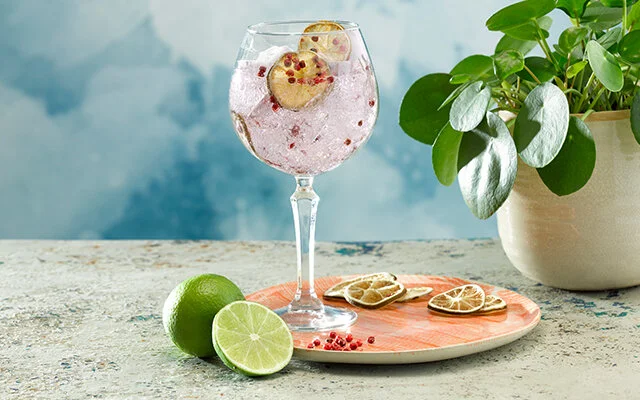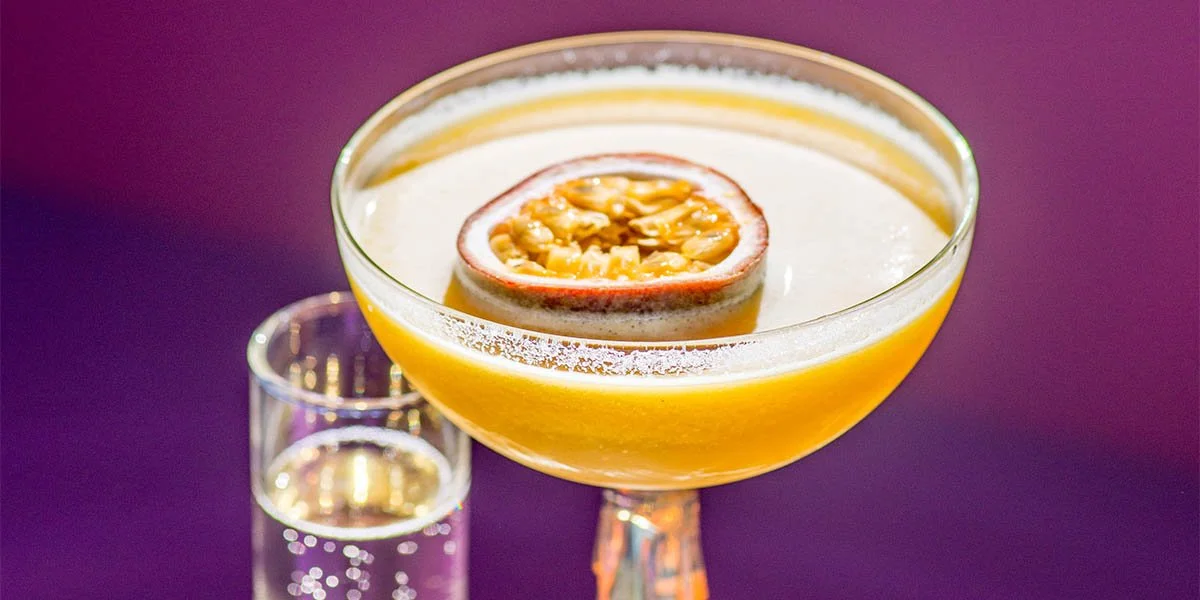Are you curious about what glassware you should be serving your gin in - and if it really makes a difference? Well, we can confirm that the answer is a definitive yes! Truthfully, the gin glass you choose isn’t merely a matter of style - it’s a fantastic way to make the most of your favourite drink, elevating scents, tastes and textures!
Yes, while copa glasses - the ones with the big bowl shape and long thin stem that originated in Barcelona - have become hugely fashionable over the last few years, as the popularity of gin has exploded across the globe, there are in fact several other types of gin glass.
Each of these has been designed to perform a slightly different function for the various kinds of drink and cocktail, to enhance your drinking experience.
Your cocktail glass can even make a difference to how you experience the same gin!
Here, we explain the six types of glass for your gin, which is best for your favourite type of cocktail, and why, along with some classic gin cocktail recipes to try them out with. Cheers!
Guide to the Best Gin Glasses
The Copa de Balon Glass
A ‘copa de balon’ (or ‘balloon glass’) is the ideal glass for a G&T
Also known as:
Balloon glass (‘copa de balon’ is the translation from Spanish, where the glass originated.)
Best for:
A classic gin and tonic, especially those using gin with a strong citrus or floral fragrance.
Why?
The wide brim of the glass lifts the fragrance of your G&T up to your nose, allowing you to enjoy the full aroma of the drink as you sip! Given all the delicious natural botanicals in gin, this is particularly important in allowing lovers of a G&T to appreciate the full range of flavours in their drink.
The bulbous bowl of a copa glass means there is plenty of space for lots and lots of ice, which means your drink stays cooler for longer, and suffers from less dilution. (Read more about this here.)
A long stem prevents your hand from warming the tipple and melting the ice.
There’s also more room for garnishes and the extra flavour they impart to your G&T.
A large wine glass will also perform a similar function.
Make the perfect G&T in your copa glass with these simple ideas:
15 creative G&T recipes that are easy to make and will impress your friends >>
2. The Highball Glass
Also known as:
Hi-ball. Not strictly the same a Collins glass (the Highball is a little shorter and narrower than a Collins glass), but can generally be used interchangeably.
Best for:
Classic gin and tonic; gin cocktails with a high volume of soda or non-alcoholic mixer; drinks requiring crushed ice, such as tiki cocktails.
Why?
These tall, straight glasses are designed to serve up tipples containing lots of ice and non-alcoholic mixer
Because they’re tall and narrow with a limited surface area, a Highball glass will keep your tipple cool and carbonated.
A Sling glass (of Singapore Sling fame) can also be used for similar cocktail recipes.
Try a highball glass for these cocktails:
3. The Martini Glass
Also known as:
Nothing, although many consider the Martini glass to be the most likely interpretation of the generic term ‘cocktail glass’.
Best for:
Straight-up, short cocktails containing few (or no) non-alcoholic ingredients, and served without ice, such as the classic Martini.
Why?
These iconic glasses are designed to keep your tipple the right temperature, as the long stem of a martini glass prevents the drinker’s hand from warming the cool liquid.
A wide brim helps lift the tipple’s aromas to the drinker’s nose - particularly impactful when drinking aromatic gin cocktails, full of natural botanicals.
The V-shape of the Martini glass helps stop different elements in the drink from separating.
The shape also allows the drinker to add a cocktail pick holding a garnish to the drink, adding still more flavour and aroma to the drink.
Try a Martini glass for these cocktails:
Classic Breakfast Martini - get the recipe >>
4. The Rocks Glass
Also known as:
Tumblers, Old Fashioned glasses or Lowballs. A ‘Single Rocks’ glass is usually used for neat drinks (pure spirit or a drink served without ice), whereas a ‘Double Rocks’ glass is slightly bigger (not double the size, though!) and is used for drinks served over a little ice.
Best for:
Strong, short drinks; cocktails requiring ‘muddling’ or that can be build straight in the glass, without a shaker.
Why?
The wide mouth and thick base of a rocks glass is ideal for muddling ingredients (fruit, herbs, etc).
They are also big enough to fit in a plenty of ice, or even an oversized ice cube - useful when you want to take your time to sip a particularly strong drink, as it will take much longer to melt and thus keep your drink cooler for longer.
Try a rocks glass with these cocktail recipes:
5. The Coupe Glass
Also known as:
Coupette (smaller), saucer or Champagne saucer. A generic ‘cocktail glass’ reference may also be talking about a coupe, although it more frequently implies a Martini glass these days.
Did you know?
While myth would have you believe coupes were moulded in the shape of Marie Antoinette’s left breast, they were actually invented in England in the 1600s, long before she was born. Since then, they’ve dethroned the Martini glass as the best way to enjoy strained cocktails.
Best for:
Straight-up, short, strong, strained cocktails.
Why?
Due to their long stem and wide rim, coupe glasses share all the advantages of the Martini glass (see above), with the added bonus that they are sturdier, so it’s not so easy to spill your drink!
Although they may look super elegant, some of the expensive coupe glasses with very long, delicate stems and fragile glass are very easy to knock over and shatter - you might want to consider a slightly plumper version!
A Nick & Nora glass is a beautiful alternative to the Coupe glass that’s becoming increasingly fashionable. These dainty glasses (shaped a bit like a bell, or a small wine glass) are perfect for short, strong drinks.
Try with these cocktails:
6. The Flute Glass
Also known as:
Champagne flute. Some other drinks also can be served in ‘flute’ glasses, such as Belgian fruit beers - these are larger and wider. For the purposes of this feature, we’re referring to the Champagne-style cocktail flute.
Best for:
Cocktails using sparkling wine, prosecco or Champagne, served without ice.
Why?
The reduced surface area of the rim keeps your fizz, well, fizzy for longer.
The stem allows you to sip your drink without warming it.
However, if you’re enjoying an exceptionally aromatic sparkling wine, swap out your flute for a champagne tulip. The slightly wider bowl allows for aeration, opening up the liquid’s flavours.




































 plus all of your
plus all of your
 See Bronze Benefits
See Bronze Benefits
 plus all of your
plus all of your
 See silver Benefits
See silver Benefits
 plus all of your
plus all of your
 See gold Benefits
See gold Benefits